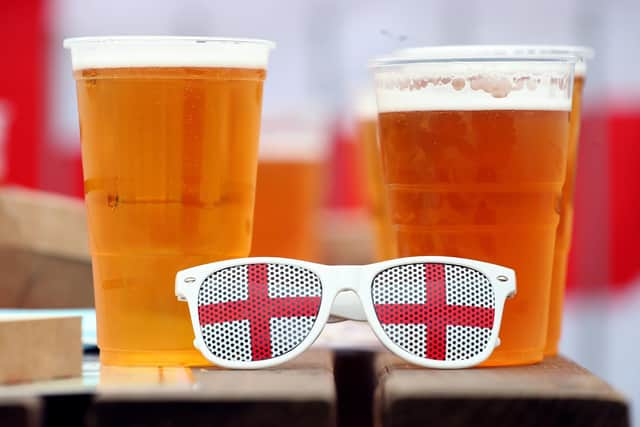People will call time on going to the boozer if surcharges on pints during busy periods become a thing - David Behrens
That’s because there are fewer travellers on Sundays, so the laws of supply and demand kick in. It’s common practice in the travel industry – as you will know if you’ve ever tried to book a week at Center Parcs during the school holidays.
Stonegate, the country’s biggest pub chain, would like us to believe that the same rules of economics apply to your local boozer: the busier it is, the more they can charge. They have adopted this as a new policy, which they’ve called ‘dynamic pricing’, because it sounds more palatable than just admitting it’s a racket.
Advertisement
Hide AdAdvertisement
Hide AdIf it were not, prices would fall commensurately when the pub was quiet. But of course they don’t. In 50 years of pubgoing I’ve never heard a landlord say, “It’s quiet tonight, gents… have the next round on me.”


Stonegate, which counts Yates’s bars and the Slug and Lettuce chain among its 4,000 hostelries, has defended its surcharge of around 20p a pint by saying it costs more to serve people when it’s busy. They tried out the idea during the last two world cups by adding 50p to the cost of a pint while England matches were on TV. Now they’ve made the arrangement permanent at around 800 venues, although the amount of the surcharge varies.
They obviously know they are playing with fire because they’ve been explaining the practice on posters with the words ‘polite notice’ in big letters. This is a contradiction in terms: if you have to say you’re being polite, you’re not. It’s a phrase only ever uttered through clenched teeth and usually by someone who’s about to thump you. This is Britain – if we really want to be polite we apologise profusely and then shut up.
And so it is with Stonegate. Its announcement has more to do with greed than civility. When its bosses see a full pub, pound signs light up in their eyes.
Advertisement
Hide AdAdvertisement
Hide AdSuppose supermarkets behaved like that, marking up the price of a tin of beans by 20p whenever there’s a queue at the checkout. But if you think about it, that’s more or less exactly what they do. They change the prices according to the size of the branch and therefore the number of people shopping there.
Tesco and Sainsbury’s both charge more at their smaller ‘convenience’ stores than for the same items at their biggest outlets. What’s more, cheaper own-brand products are often not stocked in the smaller shops.
An industry report earlier this year found Tesco Express was 10 per cent more expensive than a full-size Tesco, and Sainsbury’s Local 8.4 per cent more. The practice is so common right across the industry that we have accepted it as the norm.
But while the reasons vary – higher running costs are often cited – what it really comes down to is opportunism: seeking out reasons to charge as much as you can possibly get away with.
Advertisement
Hide AdAdvertisement
Hide AdPerhaps the most brazen example of this is Uber, which hikes its rates for taxis at peak times or when there’s a train strike. It refers to this as ‘surge pricing’ so you can see where Stonegate got the idea.
Earlier this year Sainsbury’s was forced onto the defensive when the Unite union pointed out that along with Tesco and Asda it had made a combined profit of £3.2bn for 2021, nearly twice as much as before the pandemic.
The insistence by Sainsbury’s that it was “absolutely not” profiteering sat uncomfortably with the revelation that its chief executive’s earnings had risen by 37 per cent last year to nearly £5m. Isn’t that the very definition of profiteering?
And this is the tip of the iceberg. Last year, while we shivered through winter because we couldn’t afford to turn on an extra bar on the heater, the four biggest gas and electricity suppliers made combined profits of £9.5bn – that’s 84 per cent more than in 2019.
Advertisement
Hide AdAdvertisement
Hide AdMeanwhile the eight largest container shipping firms – the ones who moaned loudest about Brexit and the pandemic – saw their total profits rise to £62bn, which is several thousand times higher than before either of those events. It all adds to the general feeling that those laws of economics are working better for everyone else than for us.
So while there’s no question that times are tough for pubs, it’s hard to swallow the idea that a profitable business like Stonegate should expect the rest of us to subsidise it. Especially when so many independent publicans would give their right arm just to get people through the door.
Carry on like this and they won’t have any busy periods left to surcharge because we’ll have adopted a dynamic pricing policy of our own and taken our money to another pub. And I mean that politely.